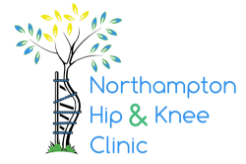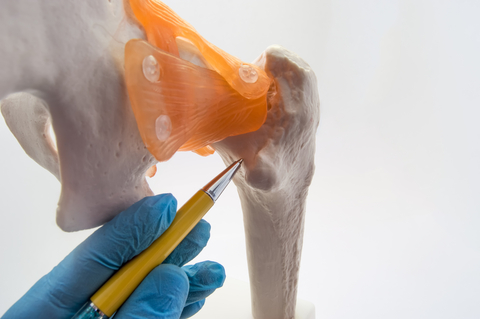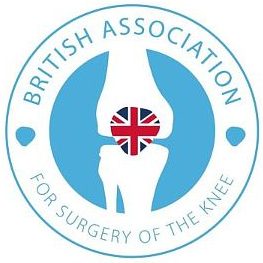Hip and knee surgery, including hip and knee replacement surgery, can be life-changing for individuals suffering from chronic joint pain, stiffness, and reduced mobility. In the UK, the consultant-led approach has become the gold standard for managing hip and knee conditions, from the diagnosis and treatment of hip and knee osteoarthritis to complex surgical procedures.
This approach ensures that a senior, highly experienced consultant hip and knee surgeon oversees every aspect of patient care, leading to improved outcomes, fewer complications, and a higher quality of life. In this comprehensive article, we will explore the key benefits of a consultant-led approach and why it remains the best option for hip and knee surgery.
Understanding Hip and Knee Osteoarthritis
Osteoarthritis (OA) is a degenerative joint condition that commonly affects the hips and knees. It causes the protective cartilage on the ends of bones to wear down over time, leading to joint pain, stiffness, and swelling. Knee osteoarthritis is particularly common, and symptoms often include pain, difficulty bending the knee, and a sensation of the knee giving way. Hip osteoarthritis can cause pain in the groin, buttocks, and thighs, limiting daily activities and physical activity.
Consultant hip and knee surgeons play a vital role in the diagnosis and treatment of hip and knee osteoarthritis. They are trained to recognise early symptoms of osteoarthritis and can tailor a treatment plan that suits the severity of the condition. Non-surgical options, such as non-steroidal anti-inflammatory drugs (NSAIDs), weight management, and physical therapy, are often recommended initially to relieve pain and stiffness in affected joints.
However, when conservative measures fail to provide adequate relief, hip and knee replacement surgery becomes a viable option. A consultant-led approach ensures that patients receive expert care throughout the entire process, from initial assessment to post-operative rehabilitation.
The Benefits of a Consultant-Led Approach for Hip and Knee Surgery
1. Expert Diagnosis and Personalised Treatment Plans
A consultant-led approach begins with a thorough evaluation by a consultant hip and knee surgeon or orthopedic knee specialist. These specialists have extensive experience in diagnosing joint conditions and developing tailored treatment plans based on each patient’s unique needs.
For instance, a consultant can differentiate between hip and knee osteoarthritis, joint injuries, and sports injuries, ensuring an accurate diagnosis. This is crucial, as misdiagnosis or delayed treatment can worsen joint pain and reduce the effectiveness of non-surgical interventions.
Once a diagnosis is confirmed, the consultant develops a personalised treatment plan. This may include:
- Medications and Lifestyle Changes: Non-steroidal anti-inflammatory drugs (NSAIDs) can effectively relieve pain and inflammation, while weight management and physical activity can alleviate stress on the affected joints.
- Joint Injections: There are times when intra-articular interventions in the hip and the knee become absolutely essential for pain relief and better mobility. Corticosteroid, Platelet-Rich Plasma (PRP) Injections, Stem Cell Therapy or hyaluronic acid injections may relieve pain and stiffness in the hip or knee joint. Hip injections are a more modern and non-invasive procedure to relieve the pain and go about your normal lifestyle. The same goes for knee injections.
- Physical Therapy: A targeted exercise programme can strengthen muscles, improve mobility, and support the joint.
- Surgical Options: If conservative treatments are ineffective, the consultant will discuss surgical options, including a total hip or knee replacement.
This customised approach ensures patients receive the most appropriate care for their specific condition.
2. Superior Surgical Expertise and Advanced Techniques
When hip and knee replacement surgery is needed, a consultant-led approach ensures that a highly skilled and experienced surgeon performs the procedure. Consultant orthopedic hip and knee specialists are trained in the latest surgical techniques, enabling them to achieve the best possible outcomes.
Some of the most effective surgical methods include:
- Minimally Invasive Surgery (MIS): Techniques such as minimally invasive knee surgery and anterior hip replacement reduce muscle damage, minimise scarring, and shorten recovery times. These procedures involve smaller incisions and cause less trauma to the surrounding tissues, resulting in less postoperative pain.
- Computer-Assisted Navigation: Advanced technology is used to precisely align implants during total hip replacement and total knee replacement surgery. This accuracy helps reduce complications, improve joint stability, and enhance implant longevity.
- Simultaneous Hip and Knee Surgery: In some cases, a patient may require hip and knee surgery at the same time. A consultant-led approach ensures meticulous planning and coordination, minimising risks and optimising recovery.
- Day Surgery and Enhanced Recovery: Some centres offer day-case hip and knee replacement surgeries, enabling patients to return home on the same day. This approach leverages rapid rehabilitation techniques and reduces the risk of hospital-acquired complications.
These advanced surgical methods are often available exclusively through consultant-led services, providing patients with access to the most cutting-edge treatments.
3. Continuity of Care from Start to Finish
Continuity of care is a hallmark of a consultant-led approach. Unlike fragmented care models, where different professionals manage various stages, this approach ensures consistent oversight by the same consultant throughout the entire journey.
This comprehensive involvement allows the consultant to:
- Develop a strong patient-doctor relationship: Patients and their families receive consistent information and personalised support.
- Take full responsibility for outcomes: The consultant remains directly accountable for the success of the treatment.
- Make informed decisions swiftly: A deep understanding of the patient’s condition allows for prompt and accurate adjustments to the treatment plan.
- Patients benefit from a streamlined experience, knowing that their consultant is fully invested in their recovery.
4. Multidisciplinary Collaboration for Holistic Care
A consultant-led approach also involves collaboration with a multidisciplinary team, including:
- Physiotherapists for postoperative rehabilitation and pain management.
- Occupational therapists to help patients regain independence in daily activities.
- Specialist nurses and pain management experts to address complications and manage pain.
This collaborative effort ensures a holistic approach to care, from preoperative preparation to postoperative support. Patients receive comprehensive care tailored to their unique needs.
5. Reduced Risk of Complications and Faster Recovery
Consultant-led hip and knee surgery is associated with a lower risk of complications and a smoother recovery process. Advanced surgical techniques, meticulous planning, and precise execution help reduce risks such as:
- Blood Loss: Minimally invasive techniques and careful surgical planning reduce blood loss.
- Infections and Blood Clots: Strict protocols and targeted medication reduce the risk of infection and deep vein thrombosis.
- Implant Failure or Misalignment: Computer-assisted navigation ensures precise placement of implants, enhancing their longevity.
Patients who undergo hip and knee replacement surgery with a consultant-led team often experience less postoperative pain, a quicker return to physical activity, and better long-term outcomes.
6. Enhanced Quality of Life and Long-Term Benefits
Ultimately, the primary goal of a consultant-led approach is to restore patients’ mobility, reduce pain, and improve their overall quality of life. After a successful total hip replacement or total knee replacement, many patients experience significant improvements, including:
- Reduced joint pain and stiffness
- Improved range of motion
- Increased ability to perform daily activities
- Enhanced participation in physical activities and hobbies
For individuals struggling with symptoms of osteoarthritis or other joint issues, consulting an orthopedic hip specialist or orthopedic knee specialist is the first step towards reclaiming an active and pain-free life.
A consultant-led approach to hip and knee surgery in the UK is undoubtedly the best option for patients seeking optimal results and personalised care. From expert diagnosis and tailored treatment plans to advanced surgical techniques and continuous support, consultant orthopedic hip and knee specialists provide comprehensive, high-quality care.
For those dealing with hip and knee osteoarthritis, joint injuries, or sports injuries, consulting a consultant hip and knee surgeon is the key to effective, long-lasting relief. Whether exploring non-surgical options or considering hip and knee replacement surgery, a consultant-led approach offers the confidence, expertise, and support needed to achieve the best possible outcomes.
Take the First Step Toward Pain-Free Living
Trust Mr. Pierre Nasr at Northampton Hip and Knee Clinic for the ultimate care in hip and knee surgery. With extensive experience in diagnosing and treating complex joint conditions, Mr. Nasr provides personalised, consultant-led care to help you regain mobility and quality of life.
Expert Diagnosis
Tailored Treatment Plans
Advanced Surgical Techniques
Comprehensive Aftercare
Don’t let hip or knee pain hold you back—book your consultation today and start your journey to pain-free living.
Contact Northampton Hip and Knee Clinic Now
Your road to recovery begins with a trusted expert.















